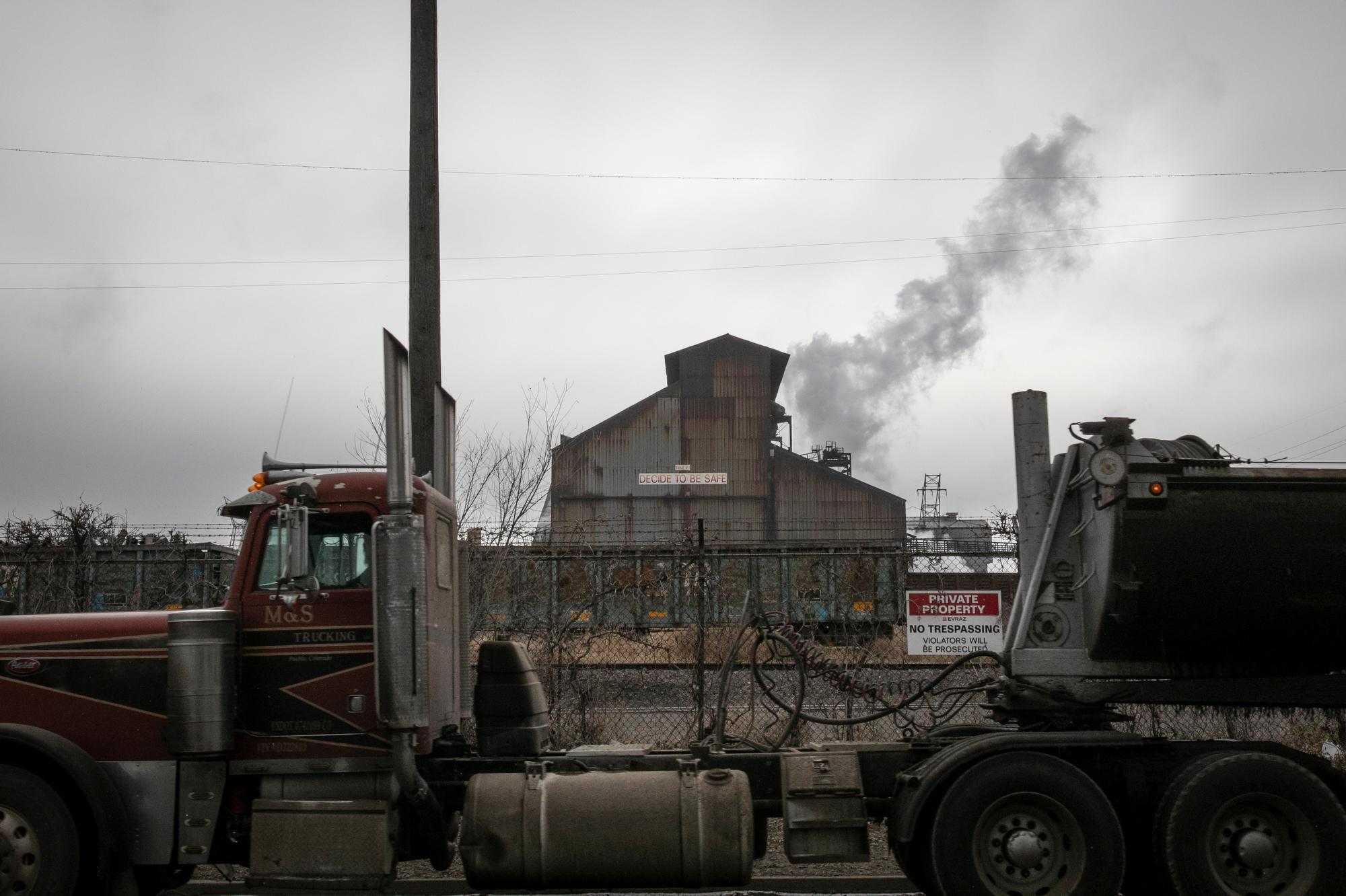
Before he walked into the dealership in early February, Gregory Kothe of Broomfield knew exactly what he wanted: an incredibly cheap Nissan Leaf.
“It's just the prices,” Kothe said. “It’s a done deal. It’s happening.”
Kothe, who had totaled his Mazda 3 swerving into a six-inch curb after another driver cut him off, ended up driving away from Boulder Nissan in a Leaf SV Plus. That required about $3,000 up front along with an agreement to pay $50 per month for a two-year lease. The deal struck him as an affordable way to try an electric car without a long-term commitment.
Similar deals have helped the humble hatchback — the first mass-market EV ever sold in the U.S — take a leading role in Colorado’s booming electric car market. In 2024, Colorado drivers registered more than 5,600 Nissan Leafs, marking a more than 800 percent increase over the previous year, according to the latest quarterly report from the Colorado Auto Dealers Association. The Nissan Ariya, an electric crossover SUV, notched a roughly 400 percent increase in registrations.
It's unclear if the trend can continue due to shrinking state EV incentives and an imperiled federal tax rebate. But Colorado’s embrace of cheap electric cars is a big reason Colorado recently overtook California as the nation’s top state for EV market share.
It also helped shift the hierarchy of EV brands. Nissan now ranks as the state’s second-most popular EV carmaker, narrowly losing out the longtime leader in Colorado and around the country:
Tesla.
A rough year for Elon Musk’s car company
After years of rapid sales growth, Tesla experienced its first worldwide decline in 2024 amid rising competition from other carmakers.
Colorado was no exception to the global sales slump. The state saw a 5 percent drop in Tesla registration between 2023 and 2024, according to the latest auto dealers report.
The decline occurred as Tesla CEO Elon Musk joined arms with now-President Donald Trump during the last election. Since then, he’s stayed in the headlines by making hand gestures many interpreted as a Nazi salute, voicing support for far right-wing political parties in Europe, and most recently leading a team to eliminate large parts of the federal government.
Those actions have caught the attention of potential Tesla customers in Colorado, which has transformed into a reliable blue state over the last two decades. Mandi Melozzi, a paraprofessional at a K-8 school in Jefferson County, said Musk’s political turn played a major factor in her recent car search. Her family wanted an EV to replace their aging Toyota 4Runner, but she opted against a Tesla as a small form of protest. Melozzi ended up purchasing a Mazda CX90, a plug-in hybrid she liked for its ability to rely on gasoline for longer trips into the mountains.
“Our only true voice in America anymore is our vote and where we decide to spend our money. It's the biggest way we can let our priorities and values be known, and so Tesla was never once on our radar,” Melozzi said.
Melozzi isn’t the only driver linking Tesla’s brand image with Musk’s personal politics. In the last few weeks, protests have erupted at Tesla dealerships in New York and California, and social media accounts have started promoting plans for far wider demonstrations. In Colorado, someone vandalized a Tesla dealership in Loveland by spray painting vehicles and scrawling the message “Nazi cars” across the showroom windows, according to photos obtained by CPR News. The FBI is now helping local police investigate the incident.
A spokesperson for Tesla did not immediately respond to a request for comment.
Matthew Groves, the president of the Colorado Automobile Dealers Association, thinks politics are far from the biggest reason EV brands like Kia, Hyundai and Nissan have surged in Colorado.
In the last few years, Tesla hasn’t released any new vehicles other than the Cybertruck, a model with a price tag almost as steep as its angular roof. Meanwhile, Groves said other carmakers have launched a wide range of cheaper EV options, which Colorado dealerships made more attractive by bundling state and federal incentives into steep discounts.
“People are vastly more concerned with affordability than they are with politics,” Groves said.
A tough road ahead for Colorado’s booming EV market
The last year, however, likely marked the high watermark of government support for EVs in Colorado.
On January 1, Colorado’s EV tax credit shrunk from $5,000 to $3,500. The state continues to offer an additional $2,500 for vehicles with a manufacturer’s retail price under $35,000. Xcel Energy, Colorado’s largest utility company, also exhausted funding for its own income-qualified EV rebates in November 2024, ending a program offering drivers $5,5000 off a new EV and $3,000 off a used model.
President Trump has also taken aim at several programs meant to encourage EV adoption nationwide. His administration has frozen funding for a federal program to help pay for high-powered chargers along highways. Before he officially entered the White House, Trump’s transition team signaled plans to end the $7,500 federal EV tax credit. Senate Republicans are now proposing a plan to follow through with the idea and impose a new $1,000 tax on EV purchases to fund road repairs.
Those headwinds haven’t forced Colorado dealerships to scrap their eye-popping EV deals just yet. Ed Olsen, the sales manager at Boulder Nissan, said his dealership continues to offer a $5 per month lease for Nissan Leaf thanks to additional incentives from Nissan, which plans to release a new version of the superaffordable electric car later this summer.
“If any of those things go away, it will impact what we're able to sell these cars for,” Olsen said. “Hopefully that doesn't happen, but who knows?









